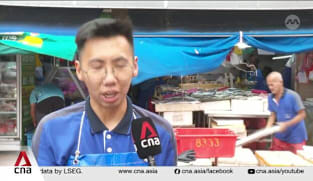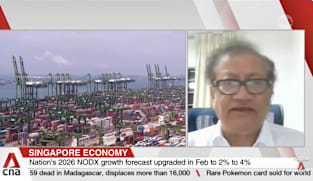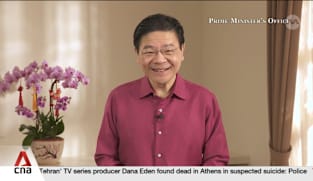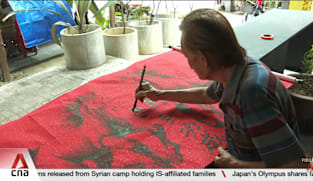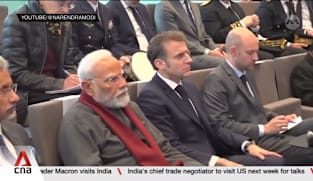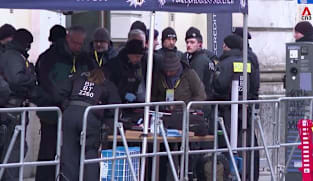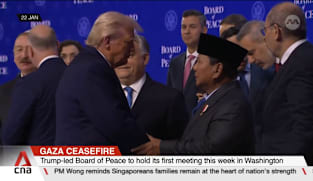Ministerial statement: Indranee Rajah on anti-money laundering measures in the real estate and corporate sectors
A new inter-ministerial committee will be set up to review and strengthen Singapore’s anti-money laundering regime. Chaired by Second Minister for Finance and National Development Indranee Rajah, it will comprise political office holders from the Monetary Authority of Singapore (MAS) as well as four ministries - Home Affairs, Law, Manpower and Trade and Industry. Speaking in Parliament on Tuesday (Oct 3), Ms Indranee said the committee will examine the current system, keeping in mind lessons learned from a recent multi-billion-dollar money laundering case in Singapore, and aim to keep the regime up to date with increasingly sophisticated crimes. The review will focus on four main areas. First, how to better prevent corporate structures from being abused by money launderers. Second, how financial institutions can enhance their controls and collaborate more effectively with each other and authorities to guard against and flag suspicious transactions. Third, how other players in the system, like corporate service providers, real estate agents and precious stones and metals dealers, can help to better guard against money laundering risks. Fourth, how to centralise and strengthen monitoring capabilities across Government agencies to better detect suspicious activities. Ms Indranee also spoke about Singapore’s restrictions on foreign ownership of landed residential properties. She noted that the eight landed residential properties issued with prohibition of disposal orders in the ongoing case are all at Sentosa Cove. Properties in that area were developed with a view to allowing foreign ownership. None of the landed residential properties are on the mainland, where approval criteria is much stricter. The others are non-landed units, which can be bought by foreigners. Requirements of the law were therefore met, said Ms Indranee. She outlined how the Government has been progressively strengthening efforts to address the higher risks of money laundering in the real estate sector and why, with multiple parties acting as “gatekeepers”, most transactions are subject to more than one layer of customer due diligence checks. Ms Indranee also laid out the measures in place to deter the misuse of companies for money laundering. These include requiring all companies to have at least one director resident in Singapore to ensure that someone can be held accountable if any breaches are committed - something that goes beyond the requirements of many other jurisdictions, she said.
A new inter-ministerial committee will be set up to review and strengthen Singapore’s anti-money laundering regime. Chaired by Second Minister for Finance and National Development Indranee Rajah, it will comprise political office holders from the Monetary Authority of Singapore (MAS) as well as four ministries - Home Affairs, Law, Manpower and Trade and Industry. Speaking in Parliament on Tuesday (Oct 3), Ms Indranee said the committee will examine the current system, keeping in mind lessons learned from a recent multi-billion-dollar money laundering case in Singapore, and aim to keep the regime up to date with increasingly sophisticated crimes. The review will focus on four main areas. First, how to better prevent corporate structures from being abused by money launderers. Second, how financial institutions can enhance their controls and collaborate more effectively with each other and authorities to guard against and flag suspicious transactions. Third, how other players in the system, like corporate service providers, real estate agents and precious stones and metals dealers, can help to better guard against money laundering risks. Fourth, how to centralise and strengthen monitoring capabilities across Government agencies to better detect suspicious activities. Ms Indranee also spoke about Singapore’s restrictions on foreign ownership of landed residential properties. She noted that the eight landed residential properties issued with prohibition of disposal orders in the ongoing case are all at Sentosa Cove. Properties in that area were developed with a view to allowing foreign ownership. None of the landed residential properties are on the mainland, where approval criteria is much stricter. The others are non-landed units, which can be bought by foreigners. Requirements of the law were therefore met, said Ms Indranee. She outlined how the Government has been progressively strengthening efforts to address the higher risks of money laundering in the real estate sector and why, with multiple parties acting as “gatekeepers”, most transactions are subject to more than one layer of customer due diligence checks. Ms Indranee also laid out the measures in place to deter the misuse of companies for money laundering. These include requiring all companies to have at least one director resident in Singapore to ensure that someone can be held accountable if any breaches are committed - something that goes beyond the requirements of many other jurisdictions, she said.








